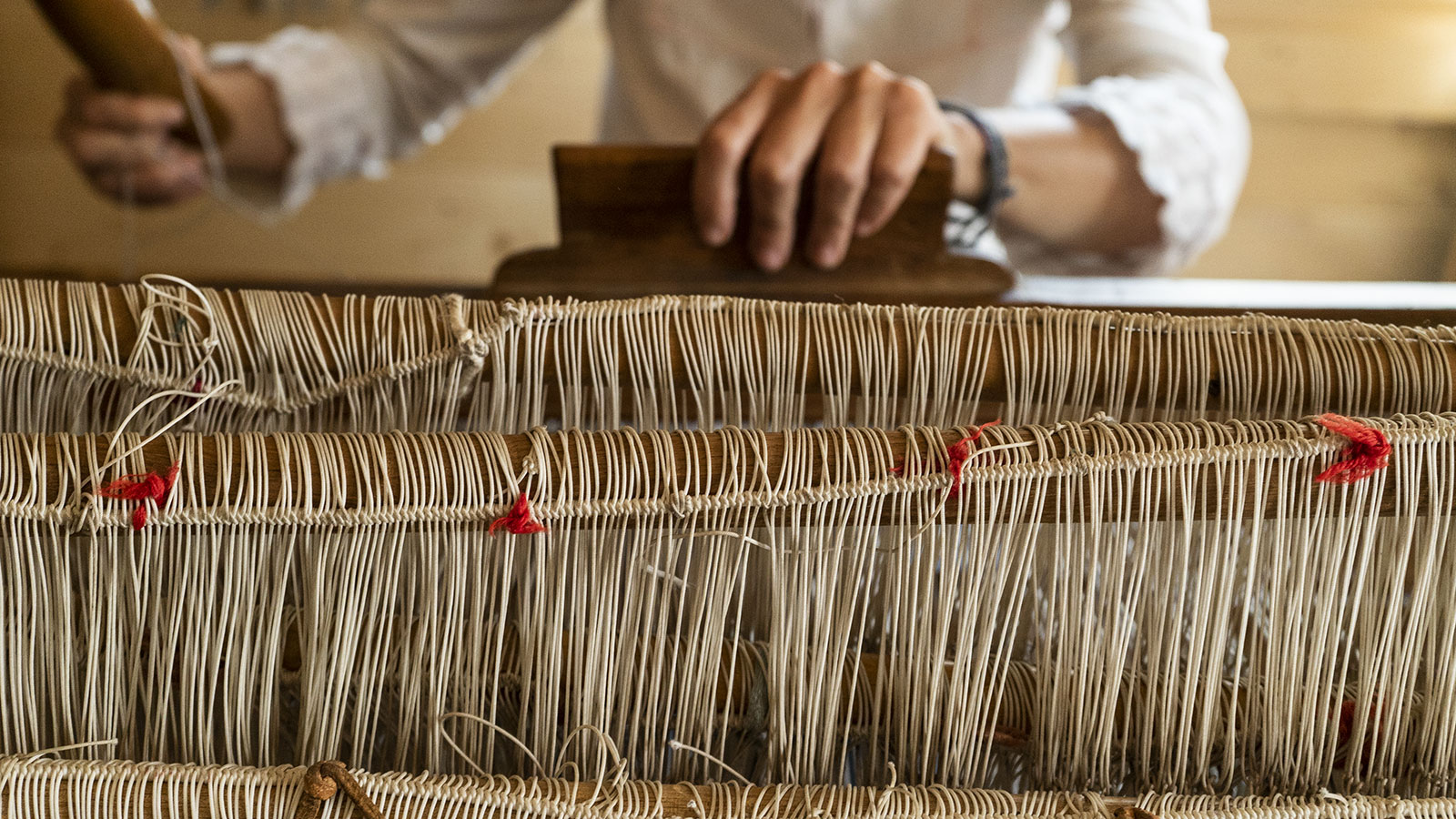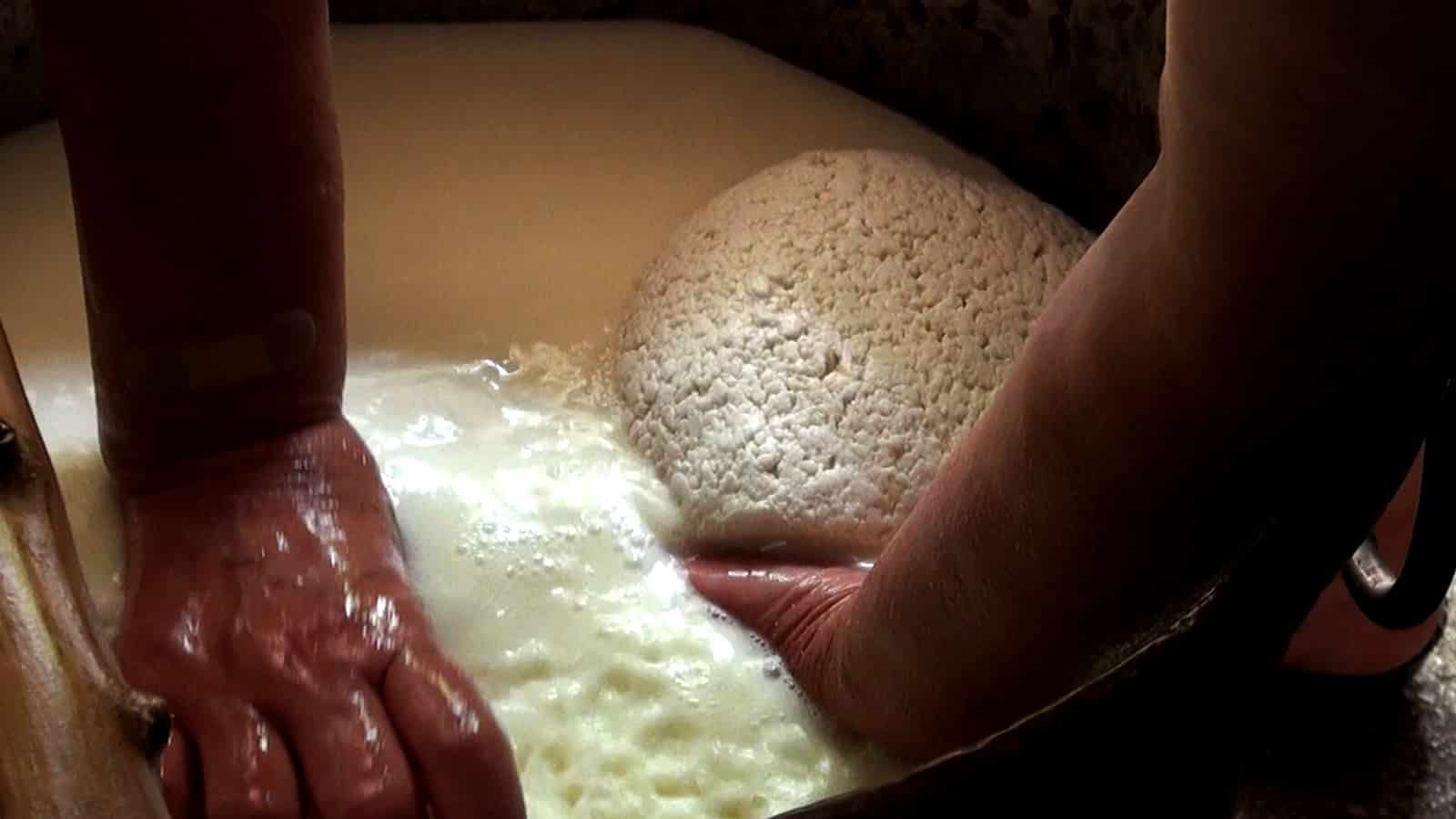Oral and linguistic expressions
Improvising verses in Campotosto
Singing “off the cuff”
“All across this verdant and abundant hill, / my Campotosto, I find you located / and by imposing high mountain peaks you still / remain forever totally surrounded. / A magnificent artificial lake will / always bathe your shores uninterrupted. / Not far away your great beauty surprises / as Gran Sasso with Monte Corno rises”.This is the ottava rima that the improvising poet Berardino Perilli has dedicated to his village, Campotosto, which lies on the shores of the lake of the same name in the Alta Valle dell’Aterno. Berardino is a shepherd; he stays with his sheep and observes them while he listens to the sounds of the flock and of the surrounding mountain. He practices the art form of extemporaneous poetry, imagines the world in verse and speaks in rhymes, while from the lake the cold wind announces the return of the winter.
Berardino Perilli, 10 August 2015
In the Mascioni, Campotosto and Poggio Cancelli areas, on the border between the provinces of L’Aquila, Teramo and Rieti, the use of the ottava rima in improvised quatrains and tercets is a poetic art that has marked the life of transhumant shepherds and is still present in residual forms. Self-taught and devoted to reading and to learning poetry off by heart, the shepherds of central Italy have always cultivated the art of poetic improvisation. They were inspired by epic poems, the Iliad, the Odyssey, and the Aeneid, and chivalric poems, like Orlando furioso, Orlando innamorato, Jerusalem Delivered and the cycle of the paladins of France. They were particularly attracted to The Divine Comedy, the Bible, and the so-called “Book of Maccarone” (Angelo Felice Maccheroni, author of The Pastoral Reed.). Homer, Ariosto and Boiardo, Tasso, Dante and Tassoni, and many other minor poets collected in anthologies lent or handed down from person to person, were for centuries their daily pastime in long days while in the company of animals, high up on the plateaus.
The ottava rima is the most complex form, structured in a concatenation of hendecasyllable verses, six in alternating rhyme followed by a final rhyming couplet, according to the rhyme scheme ABABABCC, where the final verse is taken up by the next improviser who produces a new sequence which adds to the thematic tapestry, creating genuine dialogues or contrasts in rhymes.
Berardino Perilli from Campotosto, one of the last and most representative exponents of this ancient tradition, has been composing “off the cuff poems” since he started working as a shepherd in his early youth, in the company of farmer friends with whom he shared his life and this passion. He still spends his days with the sheep, reading and making up rhymes which he later recites at many gatherings and in contests together with poets from the Alta Sabina and Maremma areas. His activity of improviser in verse, now acknowledged throughout Italy, is connected to an intense cultural curiosity, a desire for knowledge satisfied by direct learning brought to fulfilment by listening to the elderly shepherds and by a fierce and insatiable love of reading ever since he was a young boy. In summer, during his seasonal visit to Abruzzo, he still represents the essential point of reference for many enthusiasts, scholars, friends and off the cuff poets like him.
The Vocabulary
Campotosto (AQ), 10 August 2015.Recording by Gianfranco Spitilli, Don Nicola Jobbi Study Center Archive/Bambun.
Listen to the track

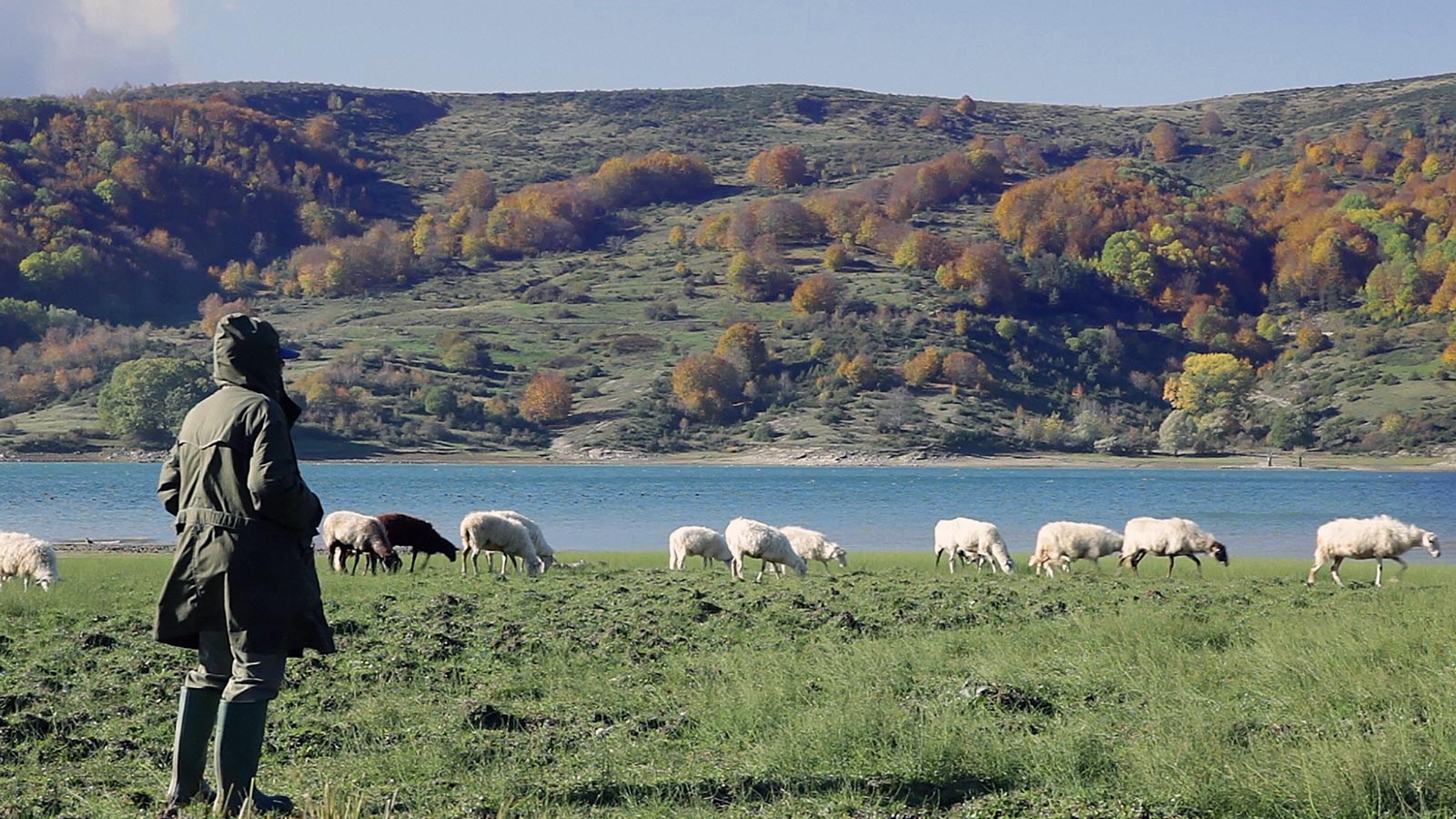
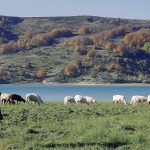
Singing “off the cuff”
Berardino and the lake
Photo by Stefano Saverioni, Campotosto, 28 September 2015, Don Nicola Jobbi Study Center Archive/Bambun.
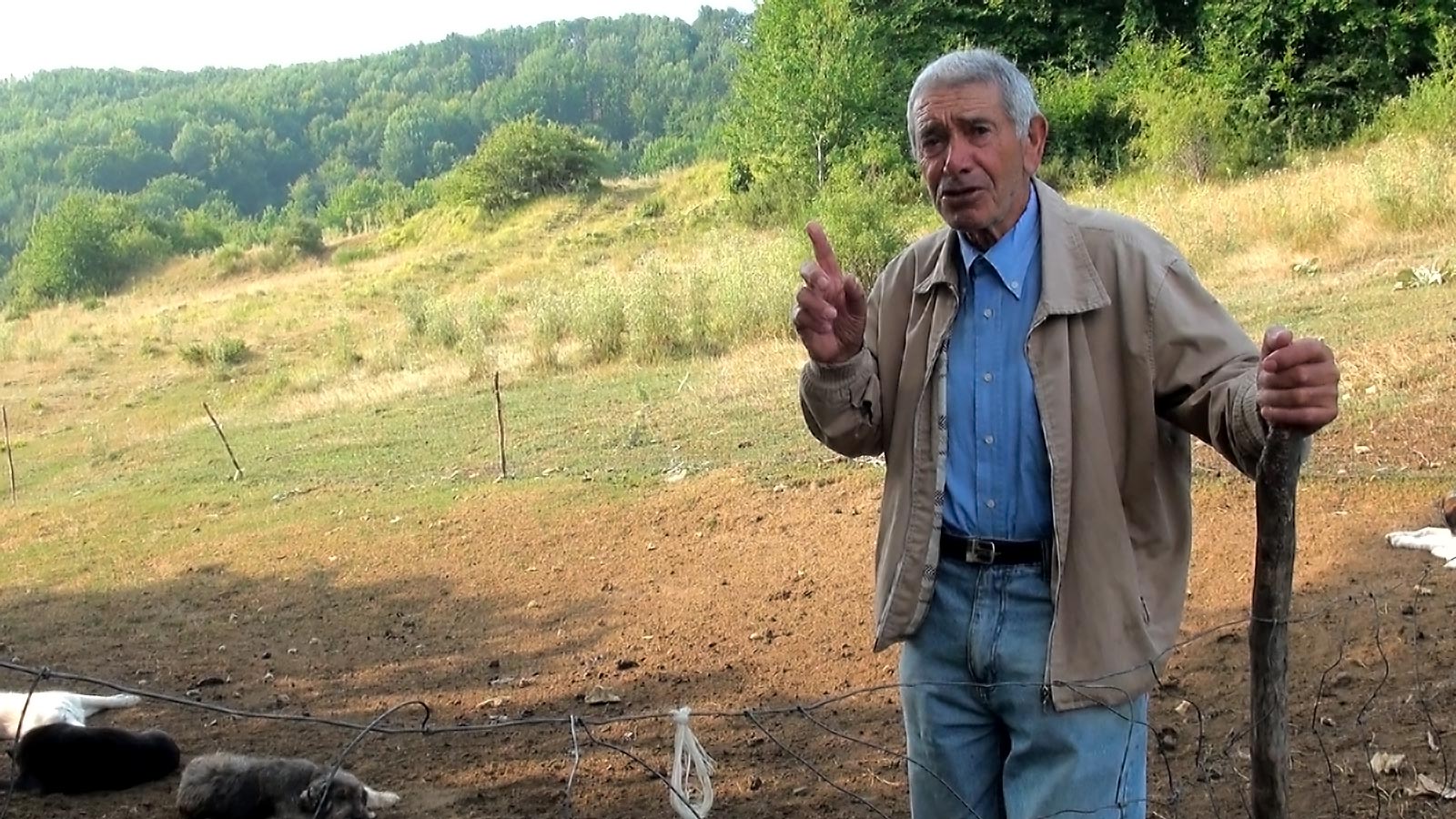
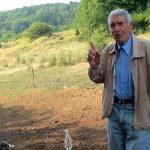
Singing “off the cuff”
Improvisation outdoors
Photo by Gianfranco Spitilli, Campotosto, 10 August 2015, Don Nicola Jobbi Study Center Archive/Bambun.
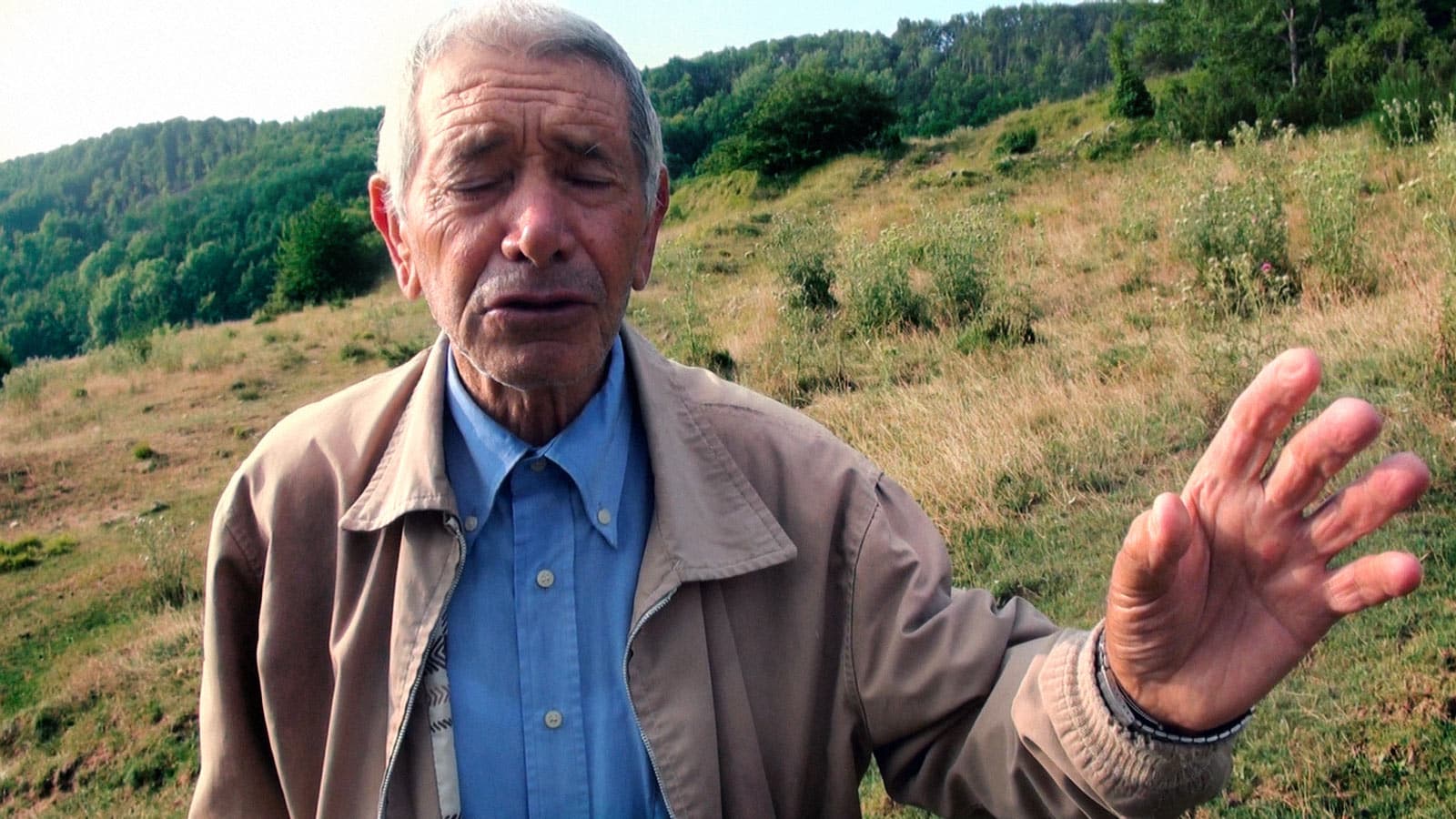

Singing “off the cuff”
Dante and Berardino
Photo by Gianfranco Spitilli, Campotosto, 10 August 2015, Don Nicola Jobbi Study Center Archive/Bambun.
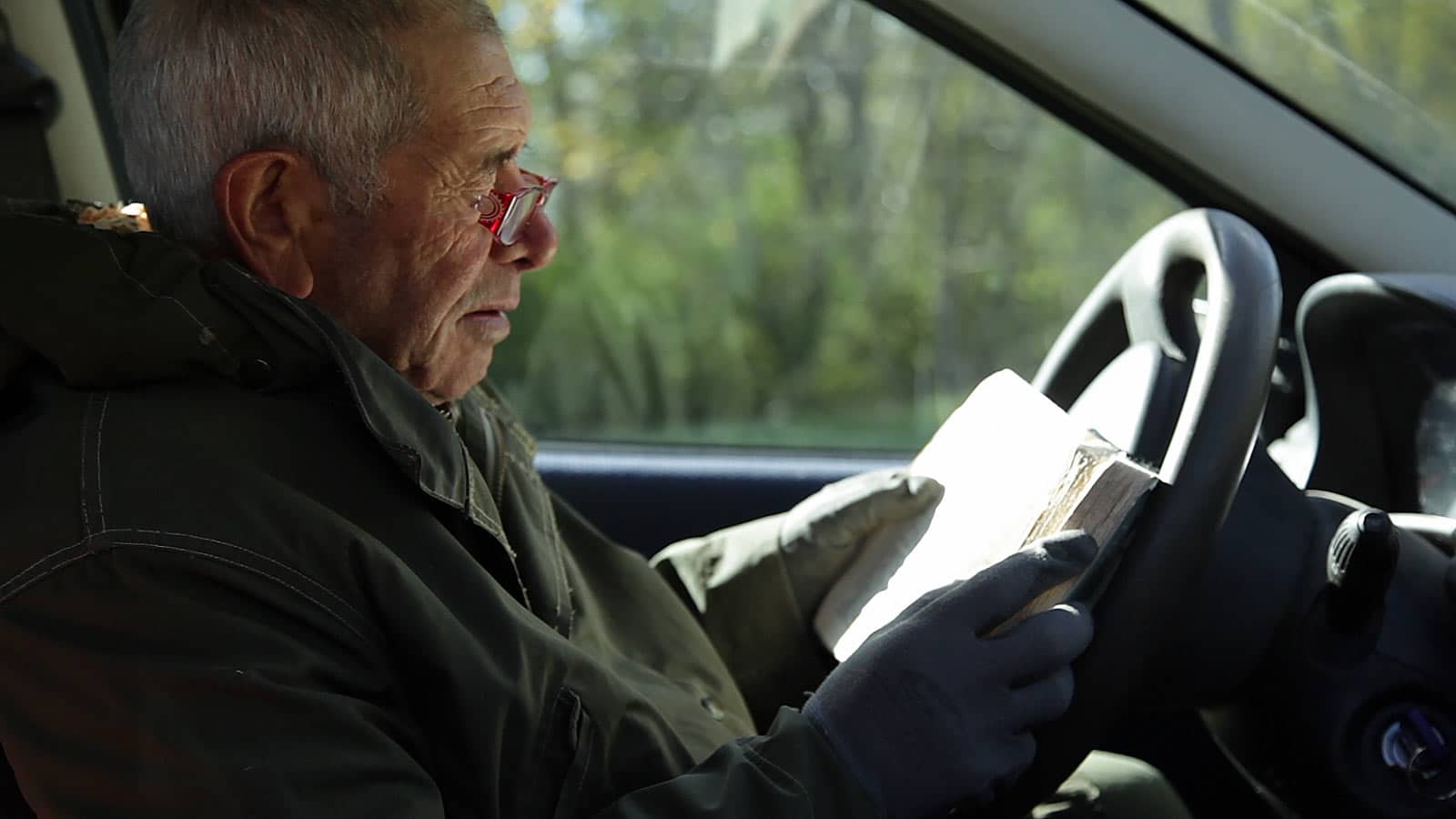

Singing “off the cuff”
The Readings
Photo by Stefano Saverioni, Campotosto, 28 September 2015, Don Nicola Jobbi Study Center Archive/Bambun.
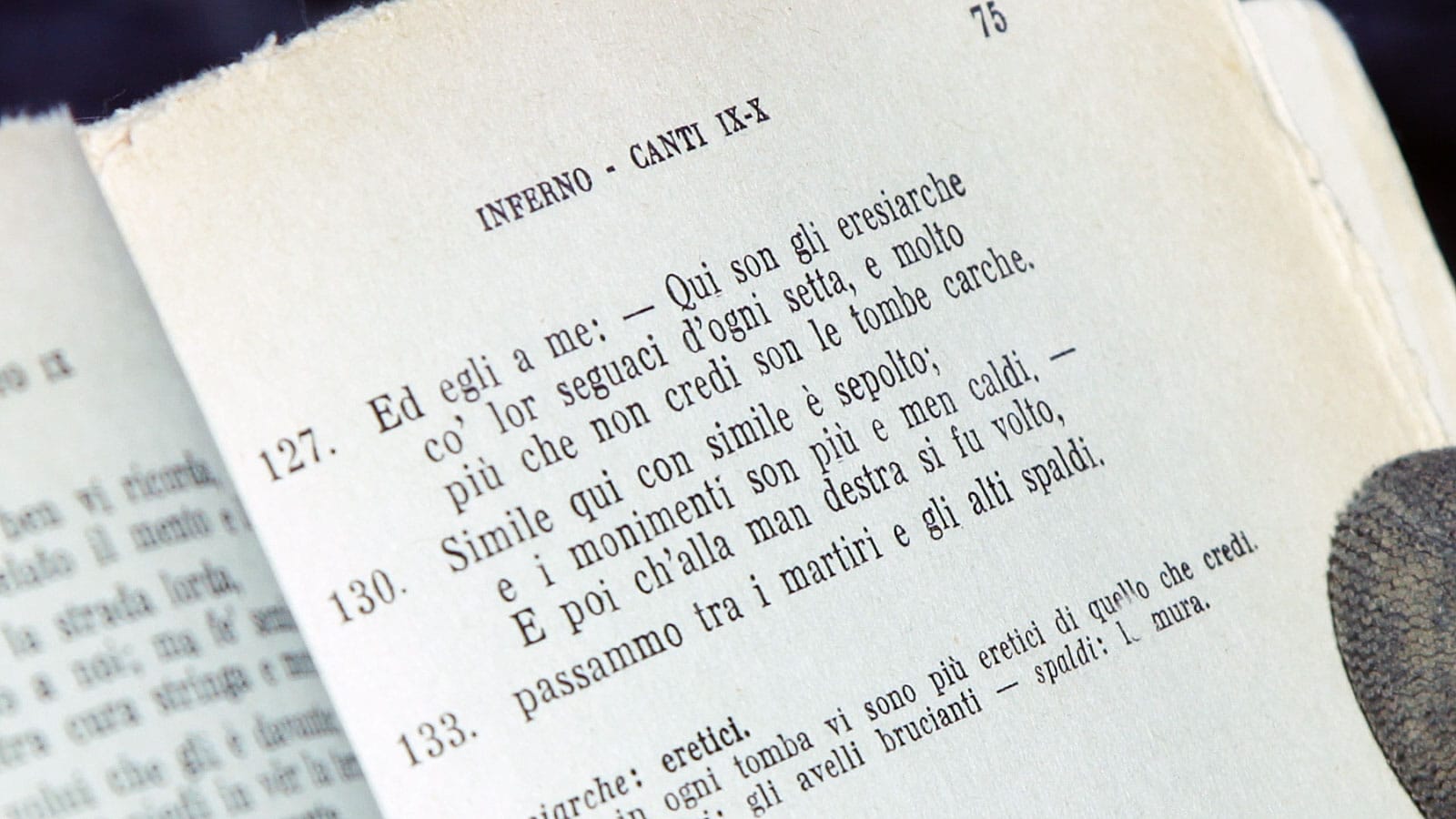
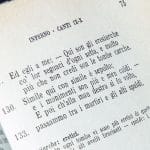
Singing “off the cuff”
Dante and Berardino
Photo by Stefano Saverioni, Campotosto, 28 September 2015, Don Nicola Jobbi Study Center Archive/Bambun.
Watch the video
Transhumance and rhymes
Campotosto (AQ), 10 August 2015.Video footage by Gianfranco Spitilli, Don Nicola Jobbi Study Center Archive/Bambun.
Cultural transmission and protection
The art of improvised singing in ottava rima made up of quatrains and tercets, unaccompanied or accompanied by instruments such as the zampogna zoppa (the so-called ciaramelle still used in Alta Sabina area) and the two-bass organetto, was passed down through the generations around the Upper Valley of the Aterno. Berardino Perilli masterfully ensured the continuity of the “off the cuff poetry” of his predecessors, by learning improvisation in rima from more elderly poets from Campotosto and Poggio Cancelli, in particular from Urmare Ciambotti, known as Scupparola, Emilio Delii, known as Miliaccio, Paolo di Carlino, Carlo Di Carlo, Ruggero Centi and Donato Sciarra and by constantly practicing with his contemporary Rinaldo Adriani, the last great poet from Mascioni, who specialized in the themes of chivalry and passed away in 2013.
Unfortunately, after Perilli’s generation there does not seem to be, a possible inheritance, especially due to the heavy depopulation that all the villages around the lake have undergone in the last half-century, a phenomenon aggravated in the past few years by the earthquake. A certain transverse vitality of practice is, however, ensured by a group of improvising poets from the area of Bacugno and Cittareale, in the province of Rieti, entertainers at parties and contests also in the neighbouring territory of L’Aquila, like the competition dedicated to the memory of Rinaldo Adriani that every summer brings together improvisers from Abruzzo, Lazio and Tuscany in the village of Mascioni.
The “off the cuff poem” in central Italy has been the subject of constant ethnomusicological research since 1948, when Giorgio Nataletti, founder of the National Centre for Studies of Popular Music (which later became the Archives of Ethnomusicology) recorded in Rome the poet Donato Sciarra from Poggio Cancelli, one of Berardino Perilli’s teachers. Over the years, the ethnomusicologists Giancarlo Palombini and Piero G. Arcangeli have paid particular attention to the area between Campotosto and Amatrice.

